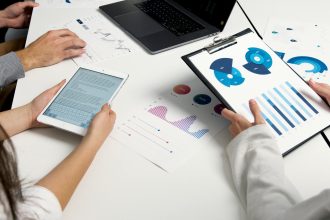cognitive-impact-of-technology
Cognitive Impact of Technology: 7 Ways to Reclaim Your Focus
In an increasingly connected world, our reliance on digital tools has grown exponentially. From smartphones to sophisticated AI, technology promises to make life easier, yet many feel an unsettling shift in their ability to concentrate, remember, and think deeply. This raises a crucial question: is our constant digital engagement subtly eroding our cognitive capabilities? The cognitive impact of technology is a topic gaining significant attention, and understanding its nuances is essential for navigating modern life.
Understanding the Cognitive Impact of Technology
The human brain is remarkably adaptable, but it wasn’t designed for the relentless barrage of information and notifications we now experience daily. Our digital habits are reshaping neural pathways, often in ways that challenge our natural cognitive processes. It’s not just about screen time; it’s about the very nature of how we interact with information and each other.
The Erosion of Attention and Focus
Constant connectivity fosters an environment of perpetual distraction. Every ping, every notification, pulls our attention away from the task at hand. This fragmented attention makes it increasingly difficult to engage in deep work or sustained concentration. Our brains are becoming accustomed to rapid-fire information consumption, impacting our capacity for prolonged focus.
Memory Retention in the Age of Information Overload
Why bother remembering facts when answers are just a quick search away? While external memory aids are convenient, an over-reliance on them can diminish our internal memory recall. Our brains are less likely to commit information to long-term memory if they perceive an external storage readily available. This phenomenon, sometimes called “digital amnesia,” warrants careful consideration.
Navigating Digital Distraction for Enhanced Productivity
Reclaiming your mental landscape in the digital age isn’t about abandoning technology entirely. Instead, it involves intentional strategies to manage your interactions. By understanding how digital tools influence your brain, you can implement changes that foster greater focus and productivity.
Strategies for Reclaiming Your Mental Clarity
Taking control of your digital environment is a proactive step towards better cognitive health. Small, consistent changes can yield significant benefits.
- Schedule “Deep Work” Blocks: Dedicate specific times for focused, uninterrupted work, turning off all notifications.
- Digital Detox Hours: Designate periods each day or week where you disconnect completely from screens.
- Mindful Social Media Use: Be intentional about why and when you engage with social platforms, avoiding aimless scrolling.
- Single-Tasking: Resist the urge to multitask. Focus on one activity at a time to improve efficiency and reduce errors.
- Curate Your Digital Environment: Unfollow accounts, unsubscribe from newsletters, and declutter your digital space to reduce noise.
The Role of AI in Shaping Our Cognitive Habits
Artificial intelligence is rapidly integrating into our daily lives, from personalized recommendations to advanced content generation. While AI offers incredible efficiencies, it also presents new challenges to our cognitive independence. Relying too heavily on AI for problem-solving or creative tasks can potentially dull our own critical thinking and problem-solving skills. It’s crucial to use AI as a tool to augment, rather than replace, our innate abilities. For further insights into the evolving landscape of AI and human interaction, consider exploring research from institutions like Pew Research Center.
Building Resilience: Practical Steps for Digital Well-being
Cultivating digital well-being is an ongoing process that requires self-awareness and consistent effort. It’s about creating a harmonious relationship with technology that supports, rather than hinders, your cognitive health.
Mindful Technology Use: A Daily Practice
Integrating mindfulness into your tech habits can significantly improve your focus and reduce mental fatigue. Here are actionable steps you can take today:
- Set Boundaries: Establish clear rules for when and where technology is used, especially around mealtimes and bedtime.
- Practice Digital Sabbath: Dedicate one day a week to minimal or no screen time, focusing on offline activities.
- Engage in Analog Activities: Read physical books, pursue hobbies, or spend time in nature to give your brain a break from digital stimuli.
- Reflect on Your Usage: Regularly check your screen time reports and reflect on how your digital habits make you feel.
- Prioritize Sleep: Ensure technology doesn’t interfere with your sleep patterns, as quality sleep is vital for cognitive function.
- Seek In-Person Connections: Balance virtual interactions with real-world social engagement to foster deeper connections and reduce loneliness.
- Learn Something New Offline: Challenge your brain with a new skill or language that doesn’t solely rely on digital platforms. For tips on enhancing brain health through various activities, resources like Harvard Health Publishing offer valuable information.
When to Seek a Digital Detox
Sometimes, a more intensive break from technology is necessary to reset your cognitive functions. If you find yourself constantly distracted, experiencing digital fatigue, or struggling with memory and focus despite implementing daily strategies, a planned digital detox could be beneficial. This might involve a weekend away without devices or a longer period of reduced tech use to allow your brain to recalibrate.
The cognitive impact of technology is undeniable, but it doesn’t have to be detrimental. By understanding the challenges and implementing proactive strategies, you can harness technology’s benefits without sacrificing your mental clarity, focus, and independent thought. Take control of your digital life and unlock your full cognitive potential. Start implementing these strategies today!
© 2025 thebossmind.com
Brain with digital overlay, person focusing on a book, digital detox, mindful technology use, human vs AI brain, attention span graph
Featured image provided by Pexels — photo by Andrea Piacquadio








